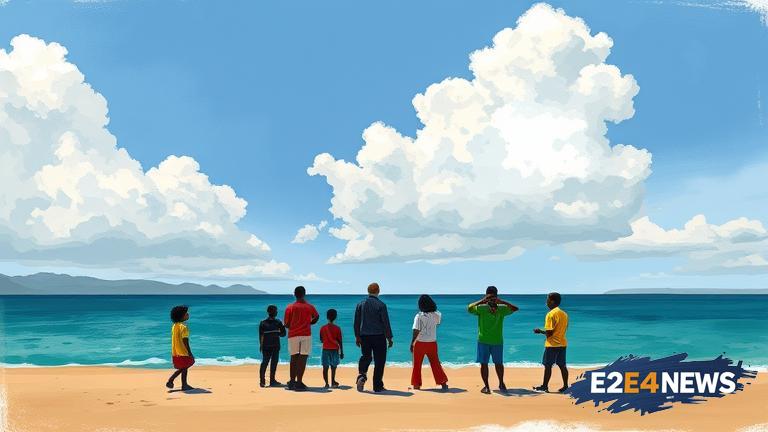The Solomon Islands, a Pacific island nation, is taking proactive measures to tackle the escalating challenges of child protection. With a strong commitment to ensuring the well-being and safety of its children, the government has embarked on a comprehensive approach that involves all sectors of society. This whole-of-nation approach recognizes that child protection is a collective responsibility, requiring the collaboration and engagement of government agencies, civil society organizations, communities, and families. The initiative aims to strengthen the country’s child protection system, providing a robust framework for preventing and responding to cases of child abuse, neglect, and exploitation. By working together, the Solomon Islands hopes to create a safer and more supportive environment for its children, enabling them to thrive and reach their full potential. The government has acknowledged that child protection is a critical issue that requires urgent attention, and has therefore made it a priority area of focus. To achieve this goal, the government is working closely with international partners, such as the United Nations Children’s Fund (UNICEF), to leverage technical expertise and resources. The whole-of-nation approach is built on the principles of inclusivity, participation, and accountability, ensuring that all stakeholders are engaged and empowered to contribute to the protection of children. This collaborative effort is expected to yield positive outcomes, including improved access to education, healthcare, and social services for children. Furthermore, the initiative seeks to address the root causes of child protection challenges, such as poverty, inequality, and social injustice. By addressing these underlying issues, the Solomon Islands aims to reduce the vulnerability of children to abuse, neglect, and exploitation. The government has also established a national child protection committee, which will oversee the implementation of the whole-of-nation approach and ensure that all stakeholders are working together effectively. This committee will provide a platform for coordination, information-sharing, and resource mobilization, facilitating a more cohesive and responsive child protection system. In addition, the government is investing in capacity-building programs for social workers, law enforcement officials, and other frontline responders, equipping them with the necessary skills and knowledge to respond to child protection cases. The Solomon Islands is also strengthening its laws and policies related to child protection, ensuring that they are aligned with international standards and best practices. This includes the development of a comprehensive child protection policy, which will provide a clear framework for preventing and responding to child protection cases. The government is also engaging with communities and families, raising awareness about the importance of child protection and promoting positive parenting practices. This community-based approach recognizes that families and communities play a critical role in protecting children, and seeks to empower them with the knowledge, skills, and resources needed to provide a safe and nurturing environment. Overall, the Solomon Islands’ whole-of-nation approach to child protection is a significant step forward in ensuring the well-being and safety of its children. By working together and leveraging collective strengths, the country is poised to make a positive impact on the lives of its young citizens, and to create a brighter future for generations to come. The initiative has the potential to serve as a model for other countries in the region, demonstrating the effectiveness of a collaborative and inclusive approach to child protection. As the Solomon Islands continues to implement its whole-of-nation approach, it is likely to face challenges and obstacles, but with persistence and dedication, the country can overcome these hurdles and achieve its goal of providing a safe and supportive environment for all children.
